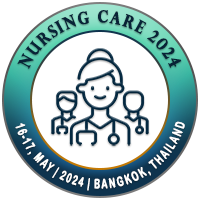.jpg)
Margaret I Fitch
University of Toronto, CanadaTitle: Identifying Fatigue in patients attending busy ambulatory cancer clinics
Abstract
Introduction
Fatigue is one of the most prevalent side effects of cancer, with both patients and survivors reporting experiences and concerns about it. In excess of 90% of cancer patients have reported fatigue. Yet clinicians may not focus on it during busy clinic appointments. A new two-item instrument was designed to quickly identify patients experiencing difficulties with fatigue. The tool has been used successfully by a variety of clinicians and researchers and translated into other languages.
Methods
The Fatigue Pictogram was designed to measure the two dimensions of fatigue most frequently described by patients (i.e., how tired they feel and how much they are not able to do within their daily activities). It was designed as a screening or triage device with two items. The patients who are identified as experiencing difficulties with fatigue using the short instrument can then undergo an in-depth assessment of their fatigue experience and receive appropriate interventions. Use has included research projects and clinical practice and has had its psychometric properties evaluated.
Results
The Fatigue Pictogram had good reliability for test-retest over a 24-hour period (Weighted Kappa 0.71 for Question 1 and 0.72 for Question 2) and for equivalence of method (in person versus phone) (Weighted Kappa 0.64 for Question 1 and 0.65 for Question 2). Validity was assessed by comparing results of the new tool against the Multidimensional Fatigue Inventory and the SF-36. Overall, patients who indicated high fatigue levels did so on all respective scales. The new Fatigue Pictogram was easy to administer and score in a busy clinical setting. It provides a standardized reliable and valid instrument to identify patients having trouble with fatigue.
Conclusion
The Fatigue Pictogram has shown consistent performance over several studies with different cancer populations. It is easily applied in a busy clinical setting and facilities identification of the patients who could benefit from intervention.
Biography
Margaret I Fitch, RN PhD, is a Professor (Adjunct) at the Bloomberg Faculty of Nursing, University of Toronto, in Canada. She has a background in oncology nursing and psychosocial oncology, including palliative care, practicing for over 20 years at the Odette Cancer Centre in Toronto. She held the positions of Head of Oncology Nursing and Psychosocial Oncology, and Co-Director of the Psychosocial and Behavioral Oncology Research Unit.
Her long-term research focus has been on coping and adaptation of patients/survivors and families across the cancer trajectory. Advocacy for patient and stakeholder engagement has been a specific interest. Psychosocial care along the cancer trajectory and survivorship are the broad foci for her research work and teaching.
Dr. Fitch currently serves as Editor-in-Chief of the Canadian Oncology Nursing Journal and is on the Board of Directors with the Canadian Association of Nurses in Oncology.

